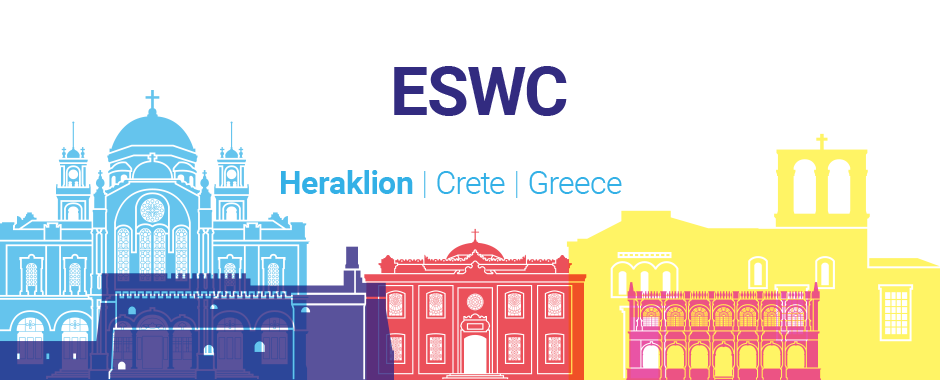Description
Since Google’s announcement of a new feature of their search engine, namely the ability to query words as the entities they name and other entities they relate to, summarised with the simple phrase “things, not strings”, the term Knowledge Graph (KG) has been interpreted in various, not always coherent ways, but rather emerged as a metaphor for a still vague concept: while many in the ESWC community have embraced the term “Knowledge Graph” as a continuation of Semantic Web and its technologies, the term is increasingly used, with slightly different valences, in a variety of other research fields. Despite this wide adoption, definitions remain vague. For instance, in a (not anymore so) recent Dagstuhl Seminar, the best definition that participants could agree upon for the term Knowledge Graph was “a graph of data with the intent to compose knowledge”.
In this track we want to take a rather broad view on the topic. As such, we expect submissions that are not necessarily a continuation or re-branding of “beaten Semantic Web tracks”, but rather embrace a broad and holistic view on the emerging interdisciplinary field from the “Knowledge Graphs” metaphor. Our ambition for the track is to scope and further develop the field, define relationships between Semantic Web and other fields under this joint umbrella and open up new research perspectives.
Negative Results
As a new theme in 2021, ESWC also encourages the submission of negative results papers, which we also encourage in this track. Specific instructions for negative results papers can be found here.
Topics of Interest
Topics of interest include, but are not limited to:
-
Foundations of KGs: definition and representation:
- Definitions and novel perspectives on KGs (potentially grounded in surveys)
- Perspectives of the field and its potential
- Novel and hybrid knowledge representation methods (e.g. combining logics and embeddings, etc.)
- More general graph models beyond the Semantic Web core technology stack (e.g. bridging to property graphs, graph databases)
-
Methods, tools and algorithms for supporting the KG life-cycle:
- Methods, tools and algorithms for the creation of KGs
- Transparency, provenance and auditability in the KG creation process
- KG archival and evolution
- Methods for KG enrichment, completion, evaluation and verification
- Multilinguality in KGs
- Novel methods for (efficient, scalable) KG storage and querying;
- Findable, Accessible, Interoperable and Reusable (FAIR) KGs
-
Understanding of KGs:
- KG as a basis for question answering, (exploratory) search
- Systems designed for navigating, querying and making sense of KGs
-
KGs and their implications for other research fields at large:
- KG as enablers of advanced AI systems (chatbots, hybrid ML-KG systems)
- KGs as enablers of explainability and transparency
- KGs in complexity science
-
Human and Social aspects of KGs:
- KGs as an interface to humans
- KGs and (organizational) knowledge management
- Human Computation techniques for KG construction and evaluation
- Identifying and avoiding bias in KGs
- Studies, methods and tools for improving (developer) experience in creating, curating and reusing KGs effectively
Delineation from other tracks:
- Concrete applications that make use of KGs in practical settings are probably a better fit for the In-Use or Industry Track
- Descriptions of concrete KGs that could be reused by the broader research community should be reported as part of the Resources Track
Submission
Information on deadlines and submission formats can be found here.
Track Chairs
- Marta Sabou, Technical University of Vienna (TU Wien)
- Axel Polleres, Vienna University of Economics and Business (WU)
